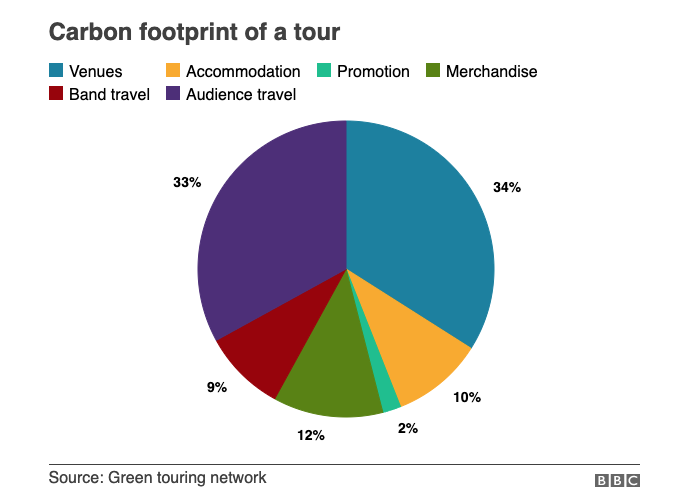“Calculate your event’s carbon emissions at Tapaus.fi to get more information.”
Taina Ronkainen leads a session about greener events in Helsinki. Photo: Erika Luoto.
TOWARDS GREENER EVENT PRODUCTION
In Helsinki the Nordic promotor network discussed environment-friendly event production with Markus Nordenstreng from Green Production and Taina Ronkainen from BusinessOulu.
Taina Ronkainen runs a project in the city of Oulu, called “The world's most sustainable Capital of Culture", where the city is racing for the culture capital title in 2026, headlining environmentally sustainable events and innovations. In the project they have connected the local event producers with the tech companies and students, and aim to find creative solutions to the environmental challenges that the festivals are currently struggling with.
Markus Nordenstreng has recently started a project called Green Production to raise awareness, provide training and tools for the sustainability development in the Finnish music industry. The project was first introduced to audio-visual businesses in 2018 by Kati Nuora at Creative Export Innovations, and due to its positive response, it quickly expanded to tackle the challenges in the music field.
RESOURCES
Europe Jazz Network’s Green Manifesto was drawn as a result of EJN’s Take the Green Train project. Take the Green Train was born as a new initiative to foster collective action, exploring the environmental issues facing the arts and cultural industries, and how the jazz sector can respond as part of a global movement addressing climate change practically and inspirationally.
Julie’s Bicycle has all sorts of environmental sustainability information and resources, and also a very handy guide to sustainable event production.
Tapaus’ carbon calculator for events is an easy way to get more info about the event productions’ carbon load.
EcoCompass certificate, which we agreed to study and hopefully adopt if applicable. The event certificate is developed in Nordic co-operation and has its equivalents in Sweden and in Norway.
Theory of change is an easy-access start for processing new initiatives. Basically it’s a simple logic model and template that makes clear the changes your organisation or project expects to make (the outcomes) and explains how you intend to make them (activities).
What is the climate impact of live music?
According to a 2010 touring study by Julie’s Bicycle, live music generates 405.000 tonnes of greenhouse gas emissions in the UK every year, and it is stated that live music is responsible for 3/4 of music industry’s carbon emissions.
There are no studies yet about the impacts of touring and/or live events in the Nordic region, but many of the big festivals have already taken action towards responsible production. Some of the examples of these events are Flow festival in Helsinki and Roskilde festival in Denmark, which have slightly different strategies, but have both adopted sustainability as a part of their brand, and use their accomplishments to create a positive image among their audiences.
Monday workshop notes: Greener event production
Adapt an environmental management system or copy the system from a similar certificated organization – ask for help from your peers, but do your own homework!
Calculate the climate impact and be creative in ways to reduce the biggest peaks
Compensate your emissions i.e. on Compensate.com
Choose green energy, save energy
Sustainable transportation for artists and equipment, and most of all, the audiences!
Reduce waste and manage it sustainably
Use circular economy: fix what is broken, borrow, rent, buy used equipment and re-use old materials
Reduce materials and use immaterial/digital services and platforms (bear also in mind that the video & audio streaming services’ data centers use a lot of energy: Recent study by Kyle Devine here, and a calculator for digital platforms’ emissions here)
Make ethical and accountable partnerships, and let everyone know about them – you’ll both double your audience.
Spread the word and take pride in your work!

